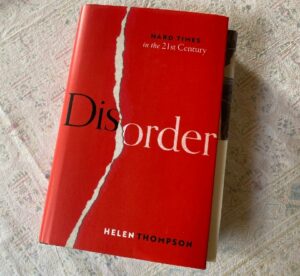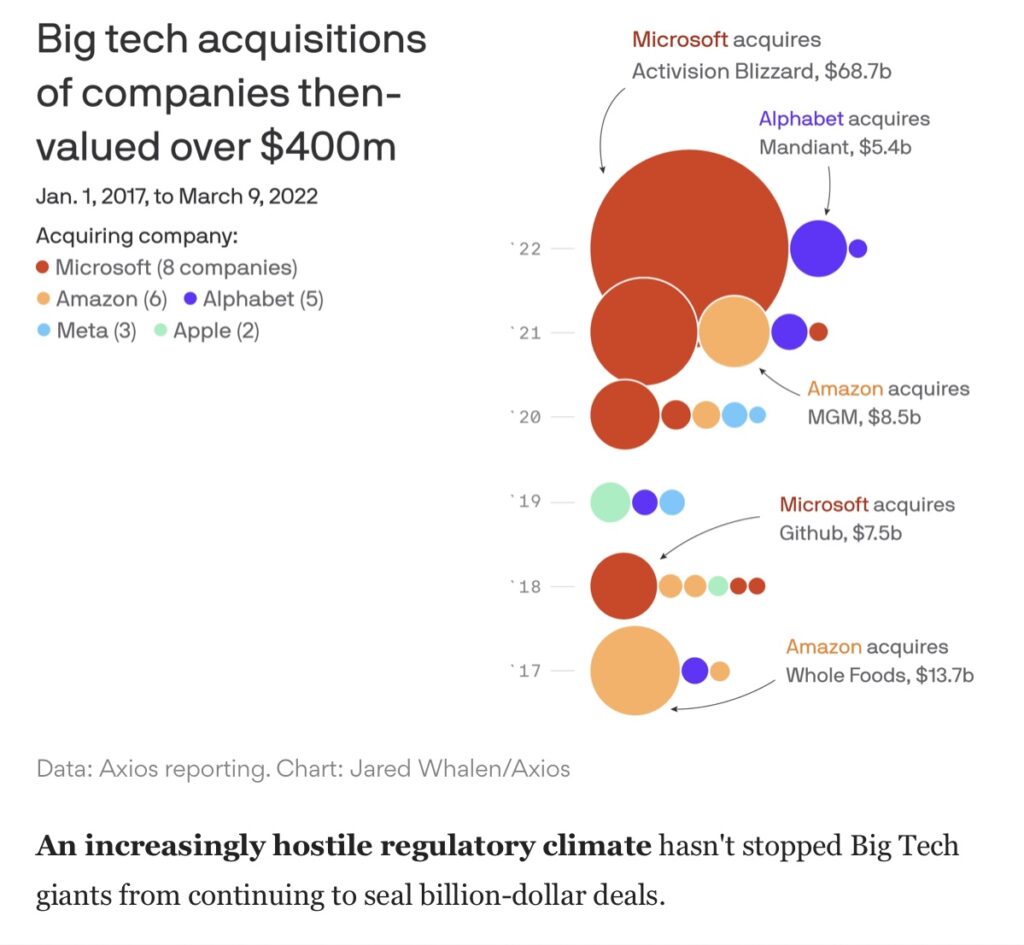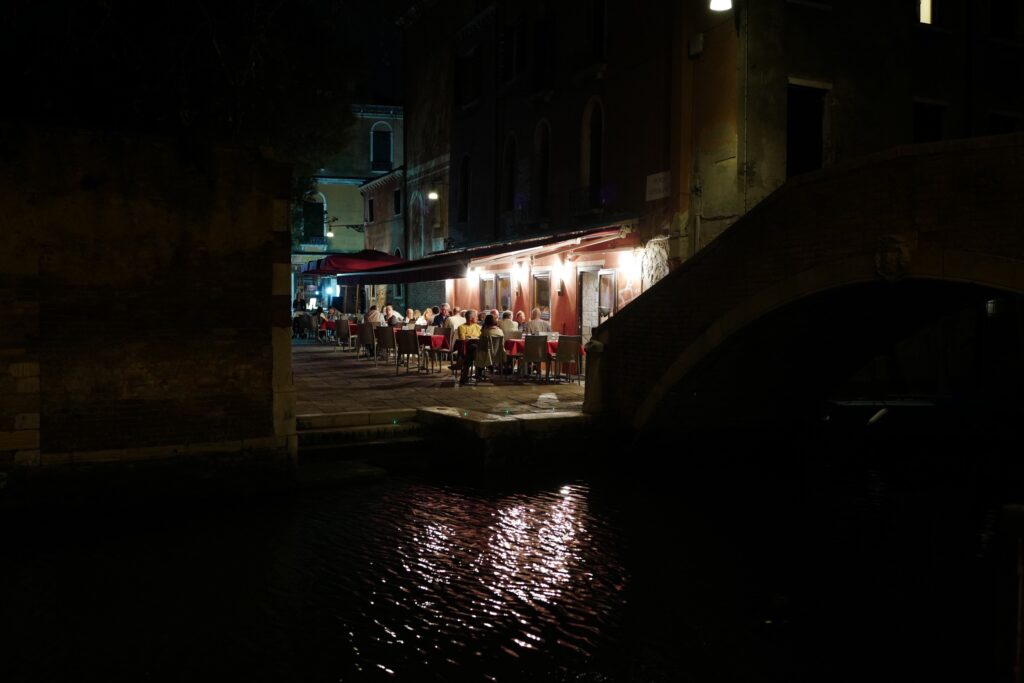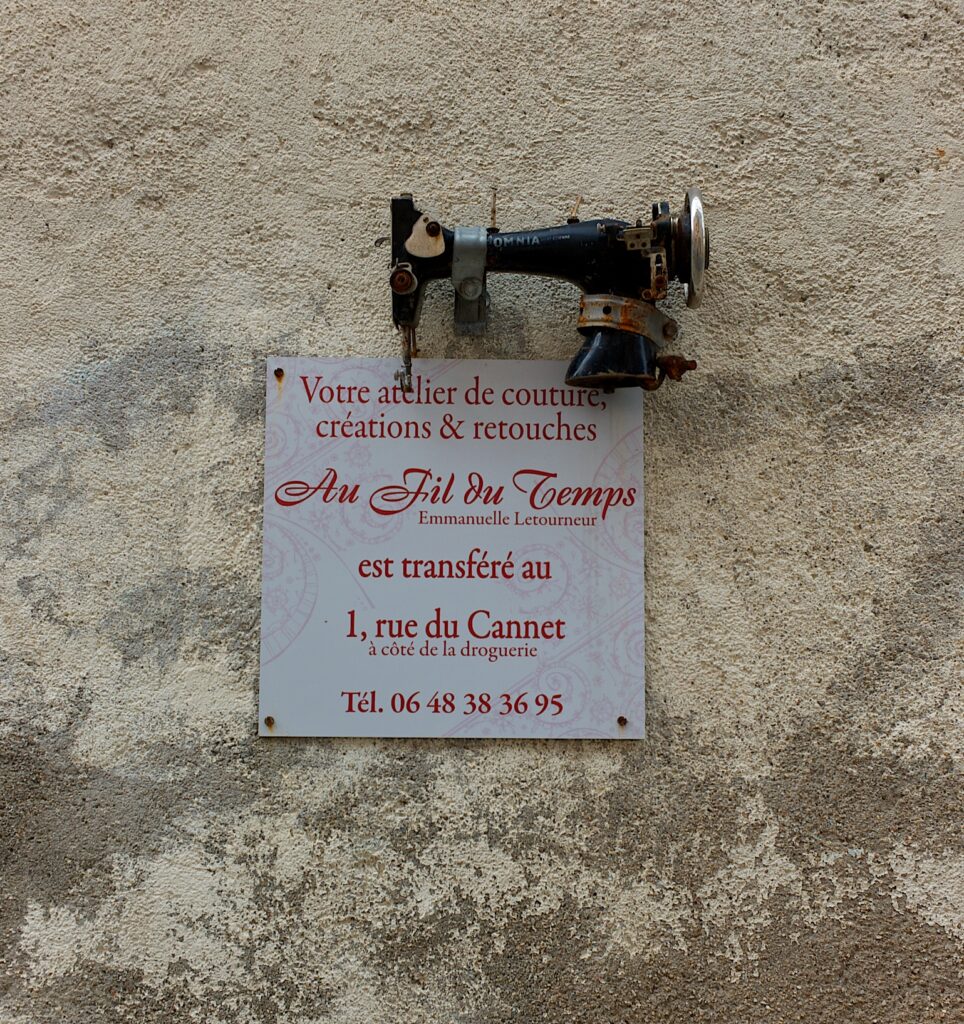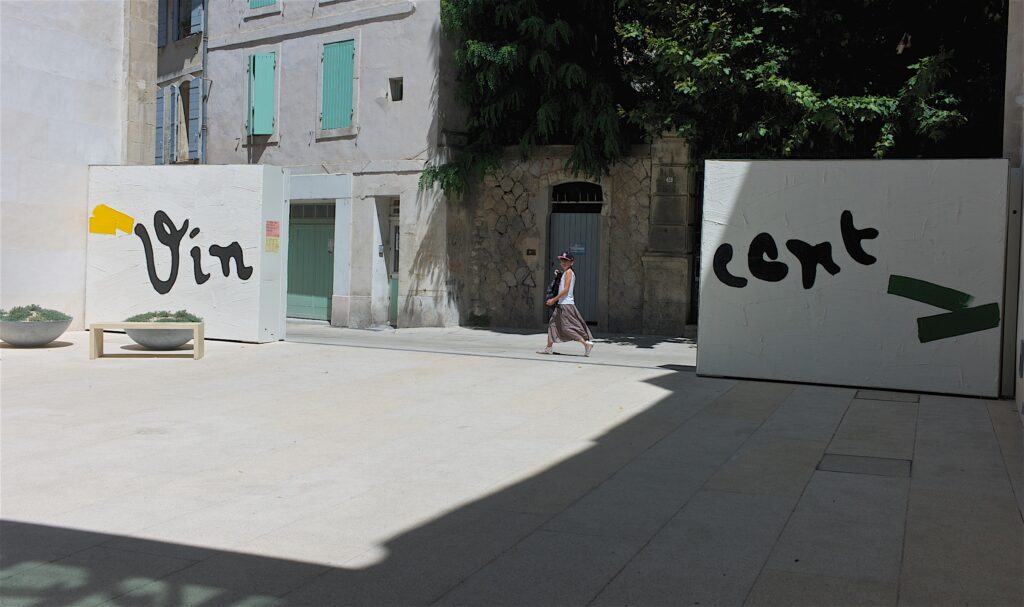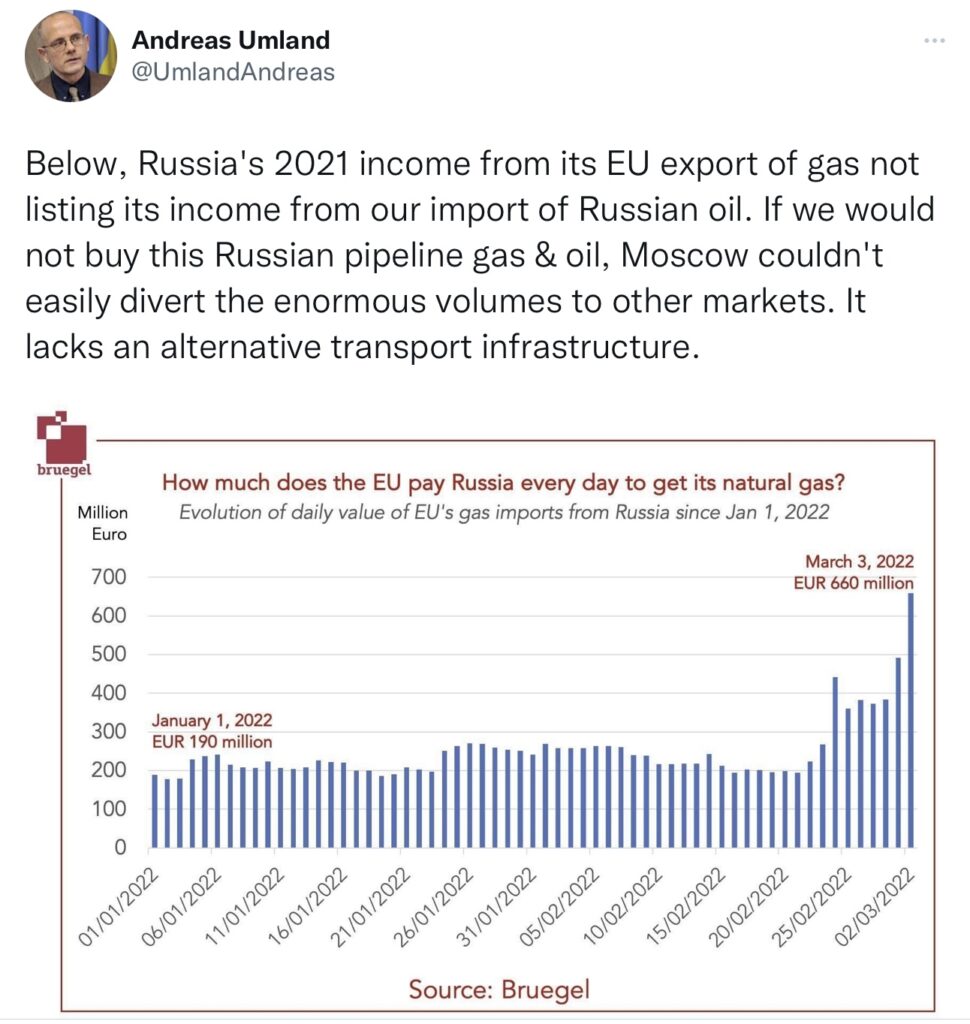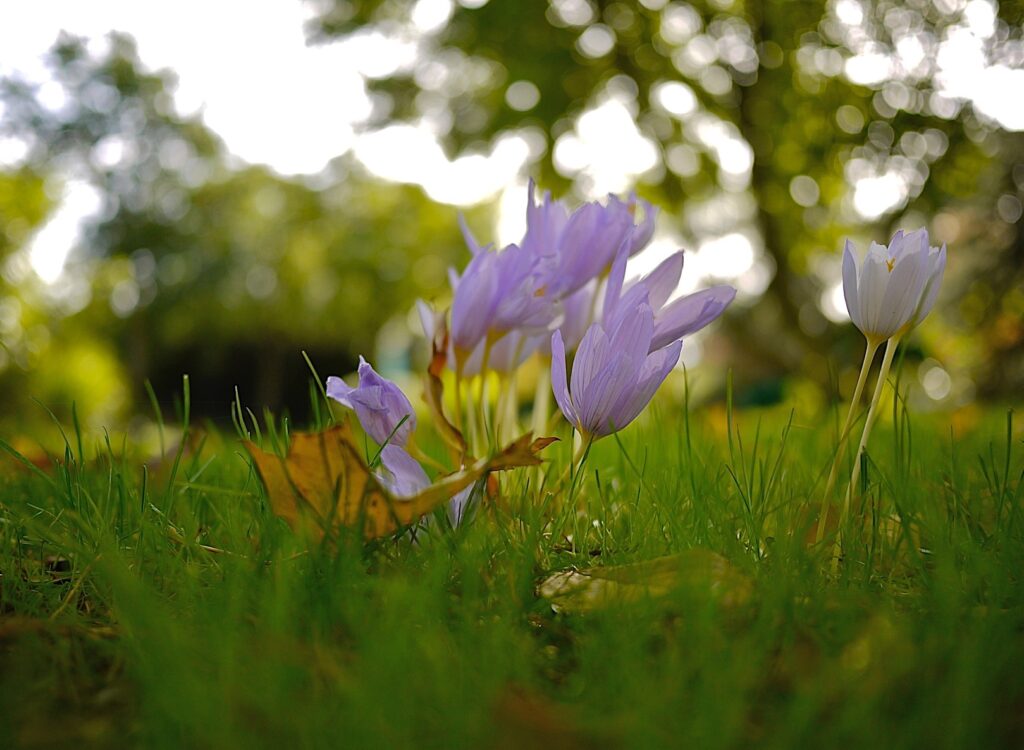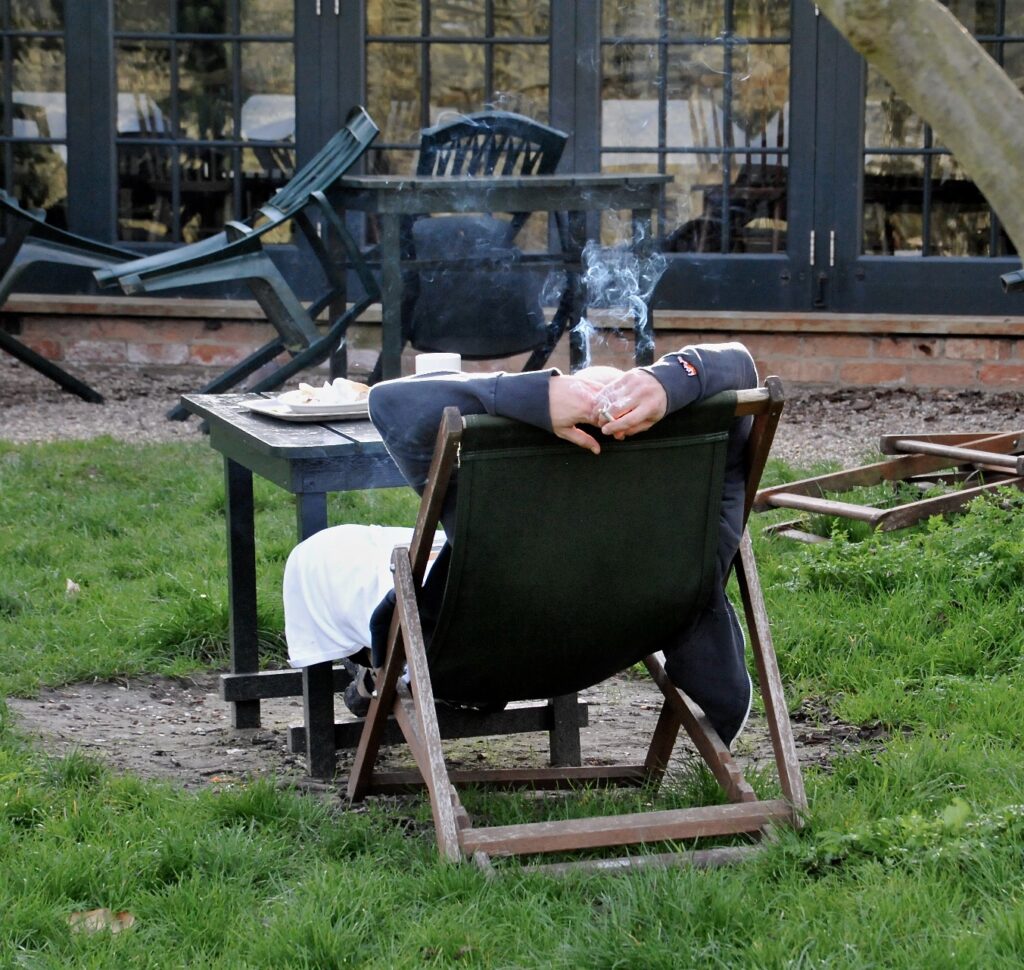Hello, neighbour
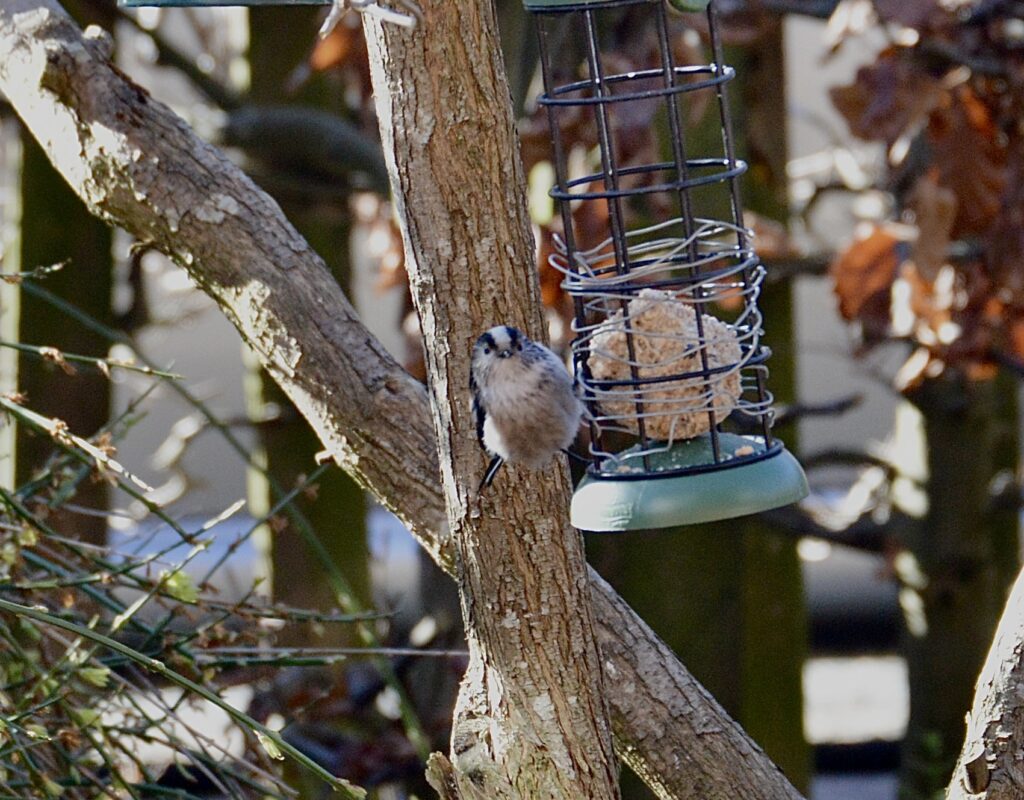
I spent a few hours last week trying — mostly unsuccessfully — to photograph the birds clustering round our bird-feeders. This is a poor photograph, technically speaking, but it’s the best of the bunch.
I set up my Nikon D700 on a tripod with a very good lens and remote control focused on particular feeders. It’s an excellent full-frame camera, but because it’s a single-lens reflex, it flips up the mirror before taking a picture. The blue-tits have such acute hearing and fast reflexes that they’re gone the moment the mirror starts to flip and there’s nothing to see when the shutter opens to take the picture!
My initial conclusion: anyone who thinks wild-life photography is easy has never done it.
Our holiday from history is over
A product of a weekend spent brooding on what’s happening in Ukraine…
Ever since Brexit and the election of Trump in 2016 I’ve had a sinking feeling that, in the long view of history, the post-war-era (the seven decades from 1946 to 2016) would come to be seen as a blip — a brief period in which democracy expanded and significant segments of the world (though of course not all — think Korea, Indochina, India & Pakistan, the Congo, the Middle East, just to name a few) came to regard peace, stability and some degree of prosperity as normal.
2016 was a pivotal moment because it highlighted the extent to which this comforting perception was the solipsistic illusion of a particular generation — mine. I’m a baby-boomer, a member of that lucky cohort of post-war Western babies who were the main beneficiaries of the period; we had free education, good jobs and careers, were able to own our own homes, had good healthcare and interesting lives, and wound up with generous pensions. And so when the Soviet empire imploded and disintegrated in 1989-1991 we complacently agreed with Francis Fukuyama that the world had indeed arrived at ‘the end of history’ with the future belonging to what we grandly called ‘liberal democracy’.
In the process, what we failed to notice was that that vaunted democracy hadn’t been so good for many of our fellow-citizens. The globalised economic system that had provided us with the good things in life had systematically and inexorably impoverished and excluded them, leaving them in post-industrial wastelands picturesquely called ‘rustbelts’. As Thomas Piketty rudely pointed out, this economic system had somehow managed to restore inequality to the levels it had before the First World War — an outcome that our politics had consistently failed to notice, or do much about. This was in part because Western political elites had been drinking the neoliberal Kool Aid since the 1970s and so allowed our democracies to morph into what John Kennith Galbraith, had he lived to see it, would surely have called The New Corporate State.
The political earthquakes represented by the Brexit vote in the UK and Trump’s election in the US should have dented our confidence in the triumphalist Fukuyama narrative (it certainly did that for me). A better reading of those shocks would have been to accept that history hadn’t come to an end and we were about to enter another phase. Or perhaps even a repetition of stuff that had gone before.
Which I fear is what we’re now seeing in Ukraine. The supposedly ‘smart’ super-integrated Russian military machine turns out to be not that smart after all, and is bogged down in a longer struggle than its dictatorial master envisaged. Which is why, in recent days, it is returning to type — or, more accurately, to a script we have seen before: a script that calls for the reduction of everything to smoking ruins, regardless of the collateral damage.
Those with long memories will recall that when the Soviet Union imploded in 1991, a tiny (population 1.5m) Muslim republic in Southern Russia began agitating for independence. Boris Yeltsin launched an invasion of the country, with heavy artillery bombing everything in sight, but failed to quell the insurgency. So in 1996 Yeltsin signed a peace treaty with Chechnya, removed all Russian troops from the territory and granted broad autonomy to Chechnya, though not formal independence.
This ‘humiliation’ seems to have infuriated Vladimir Putin, who became Yeltsin’s Prime Minister in August 1999, and within months launched a renewed bombing campaign which bombed Grozny flat and this time succeeded in taking control of the little statelet and installing a puppet regime.
My fear is that what we’re seeing in Ukraine is this history repeating itself. But what do I know about these things? Interestingly, though, Thomas de Wall, an experienced journalist who does know about these things — and who covered the war in Chechnya, also sees the parallels. “There was a project,” he writes,
“to restore Chechnya to Russian control, and nowadays in 2022, to restore Ukraine to the Russian sphere of influence. And there was no Plan B. Once the people started resisting, which came as a surprise in Chechnya and is coming as a surprise in Ukraine, there was no political Plan B about what to do with the resistance.
There’s clearly no Russian Plan B for Ukraine. If that is indeed the case, then we know what’s likely to happen.
When Chechnya was being obliterated in 1999, most of us paid little attention. After all, it wasn’t a European country. But Ukraine is.
Our complacent post-1946 holiday has really come to an end.
Quote of the Day
”How smart is that? I went in yesterday and there was a television screen, and I said, ‘This is genius.’ Putin declares a big portion of the Ukraine, of Ukraine, Putin declares it as independent. Oh, that’s wonderful … And he’s going to go in and be a peacekeeper. … There were more army tanks than I’ve ever seen. They’re gonna keep peace all right. … Here’s a guy who’s very savvy… I know him very well. Very, very well.
- Donald Trump, two weeks ago.
Trump’s way of talking is weird. He always reminds me of the know-all drunks one used to meet in saloon bars.
Musical alternative to the morning’s radio news
Grateful Dead | Deep Elem Blues
Long Read of the Day
Putin’s Challenge To The American Right
Terrific blast from Andrew Sullivan.
Steve Bannon summed it up: “Putin ain’t woke. He’s anti-woke.” Congressman Madison Cawthorn took it further: “Remember that the Ukrainian government is incredibly corrupt, and it is incredibly evil, and it has been pushing woke ideologies.” That plucky little Zelensky, speaking live to the British House of Commons as bombs rained down on his country’s cities? An “incredibly evil” “thug.” Our old friend Dinesh D’Souza, in his usual temperate style, sees the Democrats as posing “a far greater threat to our freedom and safety than Putin.” And Bannon is still urging his minions to give “zero dollars to Ukraine,” even as the corpses of children lie on the streets. There’s an alt-right edginess to this moral perversity.
And over the years, this drumbeat of love for the Russian dictator shifted the views of many grassroots Republicans. In the wake of Trump’s personal infatuation with Putin, the murderer’s favorability among Republicans jumped from 10 percent in 2014 to 37 percent by December 2016. Until as recently as January this year, “62 percent of Republicans and Republican-leaning independents considered Vladimir Putin a stronger leader than Joe Biden.” That’s the primrose path down which the GOP led its supporters — seeing Putin as a more legitimate president than Biden.
The last two weeks, to put it mildly, have pummeled this narrative…
Great essay. The problem with Putin, as Trump will eventually discover, is that in the end he will be a ‘loser’. And the thing we will all have to worry about then is the stupendous economic power that’s brought ruination to Russia.
The DAO of Blockchain
Yesterday’s Observer column:
In 1982, a guy called Benjamin Hoff, who was then employed as a tree-pruner in the Portland Japanese Garden in Oregon, published a charming little book, The Tao of Pooh, in which he argued that AA Milne’s bear had ways of doing things that appeared to echo some of the principles of Taoism, the ancient Chinese philosophy. Taoism teaches the various disciplines for achieving perfection through self-reflection, and one of its central concepts is that of pu – the idea that you should always be open to, but unburdened by, experience.
The Tao of Pooh was a runaway success, spending 49 weeks on the New York Times’s bestseller list. This has given this newspaper columnist, whose occupation is even humbler than that of tree-pruner, an idea for a new, timely bestseller, the title of which – The Dao of Blockchain – neatly embodies two buzzwords for the price of one.
Let me explain…
My commonplace booklet
-
27 Meaningful Ways You Can Help Ukraine Link
-
You can also donate to the Disaster Emergency Committee (My own preferred route.)
-
Other good ideas for support from The Ukrainian Institute in London
This Blog is also available as a daily email. If you think that might suit you better, why not subscribe? One email a day, Monday through Friday, delivered to your inbox. It’s free, and you can always unsubscribe if you conclude your inbox is full enough already!


